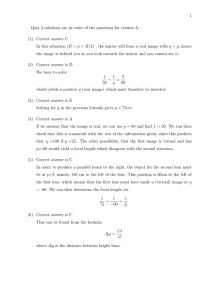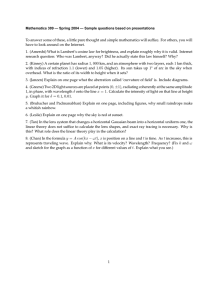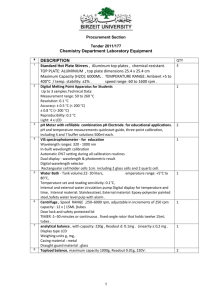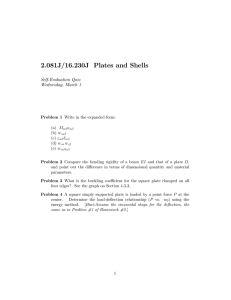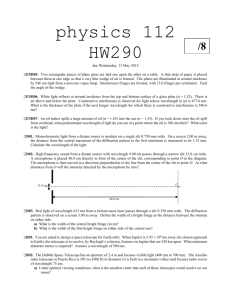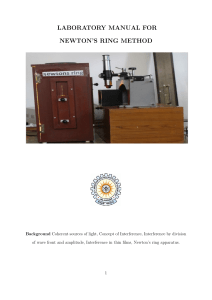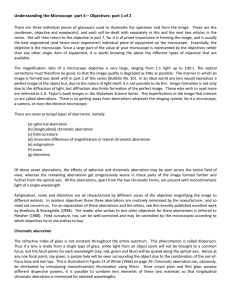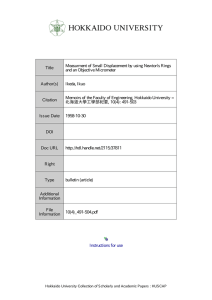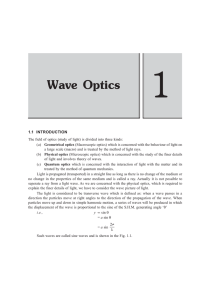LOYOLA COLLEGE (AUTONOMOUS), CHENNAI – 600 034
advertisement
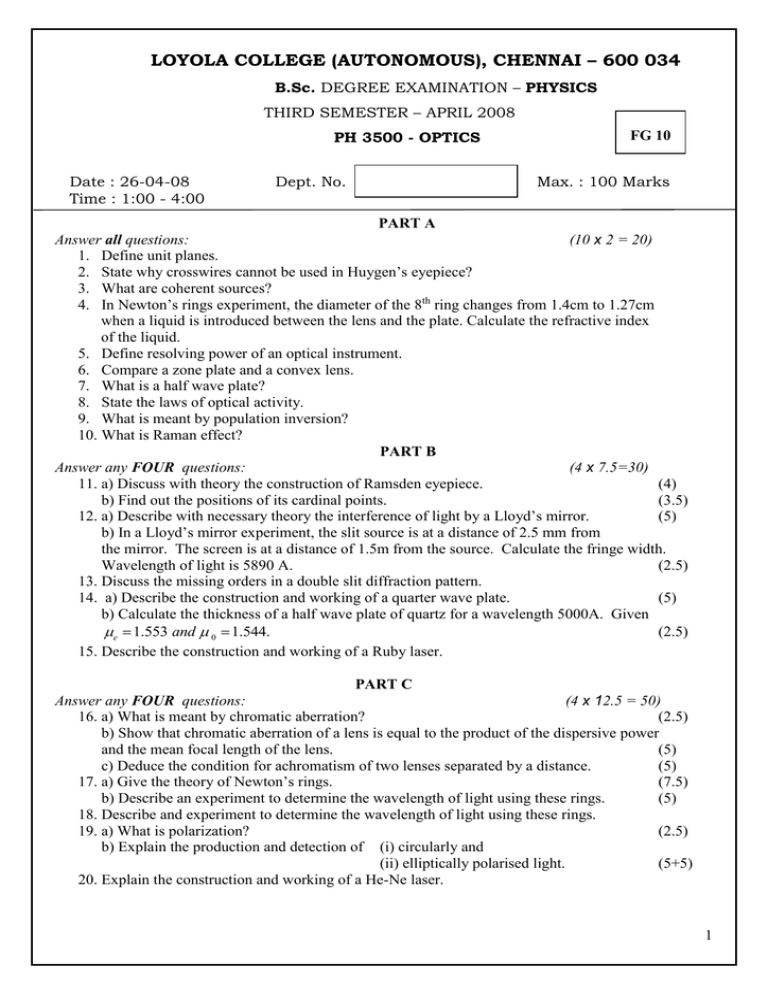
LOYOLA COLLEGE (AUTONOMOUS), CHENNAI – 600 034 B.Sc. DEGREE EXAMINATION – PHYSICS THIRD SEMESTER – APRIL 2008 PH 3500 - OPTICS Date : 26-04-08 Time : 1:00 - 4:00 Dept. No. FG 10 Max. : 100 Marks PART A Answer all questions: (10 х 2 = 20) 1. Define unit planes. 2. State why crosswires cannot be used in Huygen’s eyepiece? 3. What are coherent sources? 4. In Newton’s rings experiment, the diameter of the 8th ring changes from 1.4cm to 1.27cm when a liquid is introduced between the lens and the plate. Calculate the refractive index of the liquid. 5. Define resolving power of an optical instrument. 6. Compare a zone plate and a convex lens. 7. What is a half wave plate? 8. State the laws of optical activity. 9. What is meant by population inversion? 10. What is Raman effect? PART B Answer any FOUR questions: (4 х 7.5=30) 11. a) Discuss with theory the construction of Ramsden eyepiece. (4) b) Find out the positions of its cardinal points. (3.5) 12. a) Describe with necessary theory the interference of light by a Lloyd’s mirror. (5) b) In a Lloyd’s mirror experiment, the slit source is at a distance of 2.5 mm from the mirror. The screen is at a distance of 1.5m from the source. Calculate the fringe width. Wavelength of light is 5890 A. (2.5) 13. Discuss the missing orders in a double slit diffraction pattern. 14. a) Describe the construction and working of a quarter wave plate. (5) b) Calculate the thickness of a half wave plate of quartz for a wavelength 5000A. Given e 1.553 and 0 1.544. (2.5) 15. Describe the construction and working of a Ruby laser. PART C Answer any FOUR questions: (4 х 12.5 = 50) 16. a) What is meant by chromatic aberration? (2.5) b) Show that chromatic aberration of a lens is equal to the product of the dispersive power and the mean focal length of the lens. (5) c) Deduce the condition for achromatism of two lenses separated by a distance. (5) 17. a) Give the theory of Newton’s rings. (7.5) b) Describe an experiment to determine the wavelength of light using these rings. (5) 18. Describe and experiment to determine the wavelength of light using these rings. 19. a) What is polarization? (2.5) b) Explain the production and detection of (i) circularly and (ii) elliptically polarised light. (5+5) 20. Explain the construction and working of a He-Ne laser. 1
